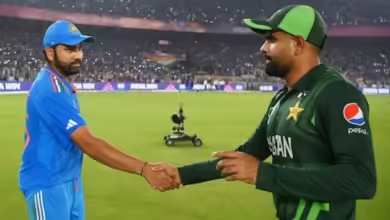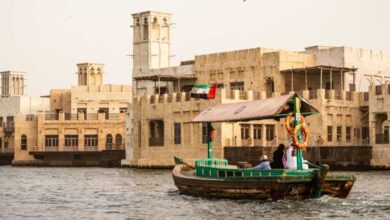Atal ji of Virat personality

Atal ji was of Jana Sangh and BJP, but people of all parties considered him as their own. His acknowledgment is known from this that PV Narasimha Rao, the former Prime Minister of India, sent him as the leader of India’s delegation to the United Nations Human Rights Commission in Geneva in 1994 while being the Leader of the Opposition.
Prabhat Jha
Atal Bihari Vajpayee was born in the Gwalior house of Krishna Bihari Vajpayee, resident of Bateshwar. His father was a teacher. So Atal ji had no political background. He made a place in the hearts of people with his speech. He connected crores of people with the effect of his speech. It is difficult to decide which form should be described and which one should be left untouched. It is not possible to sum up the whole. Yet, as soon as he remembers him, his gentle image floats in the eyes. It is difficult to put into words the heights to which Atal ji took his personality and creativity through the streets of Gwalior, passing through many stages in this journey to become the Prime Minister.
The then Sarsanghchalak of Rashtriya Swayamsevak Sangh, Guru Golwalkar had said to the founder President of Bharatiya Jana Sangh, Dr. Shyama Prasad Mukherjee, ‘I am giving you five Pandavas of the Sangh. They will be the captains and vigilant guards of India. Golwalkar used to call Pandit Deendayal Upadhyay as Yudhishthira, Atalji as Arjun, Jagannath Rao Joshi as Bhima, Yagya Dutt Sharma as Nakula and Vasant Rao Oak as Sahadeva. His address to Atal ji proved to be true in the form of Arjuna. Atal ji made the entire nation proud. He was recognized in every section of India as the emperor of the young heart.
Atal ji was the editor of Panchjanya, Swadesh and Veer Arjun. When the founder President of Bharatiya Jana Sangh, Dr. Shyama Prasad Mookerjee had announced to go to Jammu and Kashmir without a permit, Atal ji accompanied him as a journalist. When Mukherjee was arrested by the police at Lakhanpur, the gateway of Jammu and Kashmir, he told Atal ji, ‘Vajpayee go back and tell the people of India, Dr. Mukherjee has interred Jammu and Kashmir without permit.’
After hearing this talk of Dr. Mukherjee, Atal ji returned from there. Meanwhile, Mukherjee died there under mysterious circumstances. Atal ji decided right there in his mind that Dr. Mukherjee’s unfulfilled dreams have to be fulfilled. Only after this he was fully engaged in the work of Bharatiya Jana Sangh.
Atal ji was of Jana Sangh and BJP, but people of all parties considered him as their own. His acknowledgment is known from this that PV Narasimha Rao, the former Prime Minister of India, sent him as the leader of India’s delegation to the United Nations Human Rights Commission in Geneva in 1994 while being the Leader of the Opposition. Whereas in such meetings only the Prime Minister of India or other senior ministers go as the leader.
The whole world was astonished by this incident. Narasimha Rao had said in one of his speeches that ‘Atal ji’s knowledge of international relations and his experience as foreign minister makes him one of the top experts in international diplomacy in the world today.’ Political analysts of India believed that if Atal ji had become the Prime Minister of India ten years ago, then the future of India would have been different.
Not everyone can have the ability to be present for public service with impunity amidst the hustle and bustle of power-gluttony. It is not easy to keep oneself neutral in the jungle raj of party politics. As External Affairs Minister, as Leader of the Opposition and as Prime Minister, Atal ji followed these limits. The role of the opposition is very important in a democracy. While in the opposition, Atal ji was an advocate of constructive criticism. A creative approach is possible only when there is a deep study, familiarity with the intimate nature of civilization and culture, attachment to values of life and the passion for establishing rapport between human beings.
Not only did Atal ji get garlands of success in his journey to become the Prime Minister, but there were also moments when Jana Sangh founder Dr. Mukherjee died in suspicious circumstances in 1953. Similarly, Pandit Deendayalji was also mysteriously murdered. After this, he had to play the role of a sailor who rescued the team from the vortex of great despair and pain.
In 1984, Atal ji was contesting from Gwalior. He was defeated in that election. After this he went to Gwalior to tie Rakhi to his younger sister on Raksha Bandhan. All the journalists went to meet him. A senior journalist told Atal ji, ‘Listening to your speech generates immense reverence in the mind of the public.’ Giving a quick reply, Atal ji said, ‘Shraadh in speech and Shradh in vote’. Hearing this, all the journalists understood the depth of politics. Atal ji used to say very deep things in the mood. He made his own identity through speech and style. He was such a politician of India, after listening to the message of the meeting, millions of people easily came to listen to him.
In Indian politics, hardly any other leader has got as much popularity as Atalji lived while in opposition. There was harmony and uniformity in Atal ji’s conduct and words. As long as he remained in the opposition or in power in the house, he remained the political hero of the house. Even in the sad situation of becoming the Prime Minister for the first time in 1996 for thirteen days and the fall of the government by just one vote in 1999, he neither deviated himself nor allowed the party members to be sad and bewildered due to the defeat.
All this is possible only when a person has self-confidence and has complete faith in himself. Atal ji also said, ‘If a government is formed due to horse-trading and any such manipulation, then I would not like to touch it even with tongs’. For this, the opposition leaders also praised him in the House. Every Indian also felt the pain of Atal ji. With the blessings of the people of the country, he again became the Prime Minister in the 1999 elections. This was Atal ji’s irresistible and colossal personality.
Atal ji often used to say, ‘Friends can change, neighbors cannot’. This was the reason why he took a bus from India to Lahore, but when Pakistan showed its eye, it was defeated badly in the war of Kargil. He was an advocate of small states. He had easily formed Chhattisgarh, Jharkhand and Uttarakhand during his tenure. Taking the historic decision to connect the villages of India with roads, left no stone unturned to make it a reality. By conducting nuclear tests in Pokhran for national security, we gave a message to the world that we are not weaker than anyone.
Atal ji was a principled, simple in thought and practice and a great leader from the ground up. He also used to win the hearts of opposition leaders. He believed that the BJP was a party of workers. He who is a leader is also a worker. He said that the one who is an MLA today may not be an MLA tomorrow. MPs will also not last forever. Some people are changed by the party, some are changed by the people, but the position of the worker is such which cannot be changed. Our right to be activists cannot be taken away.
(The writer is former BJP Vice President)
,





